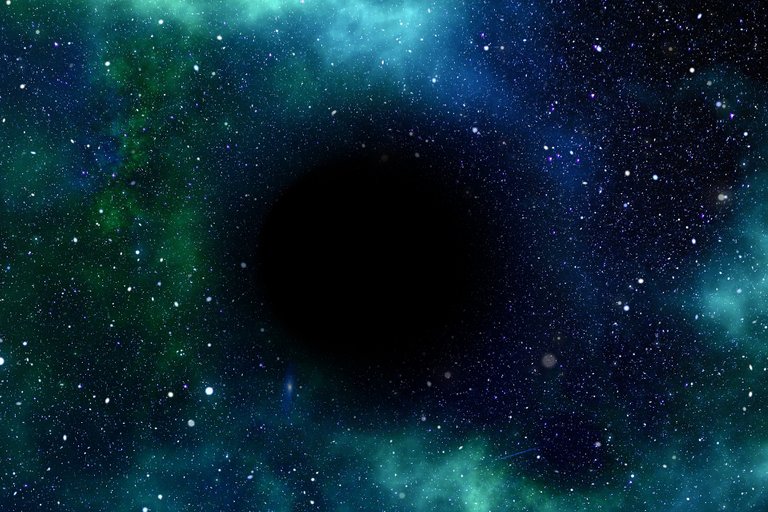A Black Hole May Orbit The Sun
Several clues suggest that at the periphery of the Solar System an unknown yet massive planet exists. But what if it isn’t a planet but a primordial black hole?

- Be also sure to check out my other posts and follow me @kralizec and subscribe to my Youtube channel at Kralizec Gaming Youtube Channel
The summer may have ended the exotic stories come out even during the autumn. And they certainly are interesting. And this story is exotic, exciting and maybe taking place in our own cosmic backyard. And then the two astrophysicists are correct then we have quite the monster at our backyard.
Experts have been bewildered for some time by the strange orbits of many objects at the periphery of our Solar System. For several years some of them think that there could be another and a quite large planet. But even though we are trying hard the planet has not been found. And that brings more exotic options onto the table.
Jakub Scholtz from the Durham University and James Unwin from the University of California, Berkley recently published a study that brings a surprising maybe even shocking if not scary explanations. They think that it a black hole orbiting the Sun somewhere behind the orbit of Neptune. Maybe even several black holes.
This may sound crazy. But if someone came just five years ago that we would observe one interstellar object after another in our Solar System they too would be considered crazy. But now it’s just a fact of science. Scholtz and Unwin claim that our Sun could have gravitationally caught a primordial black hole that was previously just freely floating through space.
The researchers were inspired not only by the orbits of transneptunian objects but by the suspicious amount of gravitational micro-lenses that were found in the past 5 years thanks to the OGLE (Optical Gravitational Lensing Experiment). The authors think that both of these facts can be explained only by one or more likely several objects that would have a total mass of several Earths that are very hard to observe.
Both Scholtz and Unwin say that the same mechanism – gravitational catching is the main explanation of how the “unfound” planet could find itself in the Solar System. And together they demonstrate that the chance of it not being a planet but a black hole is very similar. Yes, it is just a theory and quite an extreme one.
But, Scholtz and Unwin aren’t giving up. They proposed a way how we could track the primordial beasts. The black holes should be surrounded by micro-clouds of dark matter which could under certain conditions radiate signals in the form of gamma radiations. If we can detect such signals that we may have a black hole in our backyard.
Sources:
- If you like the content I’m producing about science maybe you will like the content I produce about gaming as well! Be sure to check out my other posts!
To listen to the audio version of this article click on the play image.

Brought to you by @tts. If you find it useful please consider upvoting this reply.
There's talk of naming the mystery planet David Bowie. If it turns out to be a blackhole, that'd be even better.
But that would be as unlikely as finding a unicorn in your backyard. A blackhole would be so useful to us. Not just for the chance to study a blackhole, but also for many practical uses, like energy production and studying quantum gravity.
Maybe we could even use it to sling probes all over the place.
Nice one keep sharing.